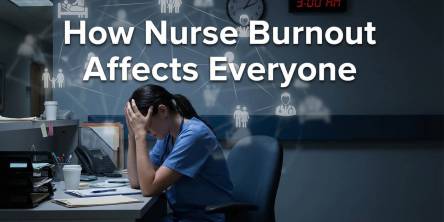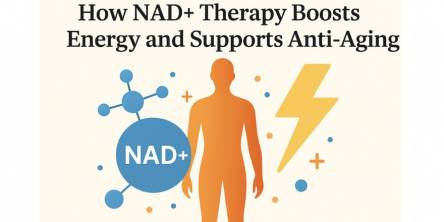How To Choose The Right Addiction Treatment Program For You

Choosing the right addiction treatment program is a crucial step in the journey to recovery. This decision is deeply personal and shapes the road ahead, as each person’s struggles with addiction are unique.
With a wide range of recovery options, finding a program that matches your needs and provides a supportive environment for healing and growth is essential. As you explore treatment options, gather information that aligns with your situation to set the stage for a successful recovery journey.
Read on for a comprehensive guide to confidently maneuver through the critical decision-making process of choosing the right addiction treatment program.
Understanding Addiction Treatment Options
When it comes to overcoming substance use disorders, recognizing the breadth and depth of addiction treatment options available is the first step toward recovery. These options are diverse and designed to address various addiction aspects through multiple settings, intensities, and methodologies.

To guide you in exploring your options, consider the following key aspects:
● Level of care needed: Understanding your required intensity is crucial. Inpatient programs provide 24/7 care and are suited for those with severe addiction or co-occurring disorders, offering a structured environment for recovery. Outpatient programs allow individuals to live at home while receiving treatment, suitable for those with mild to moderate addiction levels who have strong support systems. Residential care offers a middle ground, providing a home-like setting with continuous support, ideal for those who need a stable environment to recover.
● Treatment methodologies: Choosing programs that employ evidence-based approaches is essential, ensuring that the methods used have been scientifically tested and proven effective. Cognitive Behavioral Therapy (CBT), Dialectical Behavior Therapy (DBT), and Medication-Assisted Treatment (MAT) are among the most recognized and effective treatments for substance use disorders.
● Specialization: Certain programs are tailored to treat specific types of addiction, such as alcohol, opioids, or stimulants, and may also offer specialized care for individuals with co-occurring mental health conditions like depression or anxiety. Selecting a program specializing in treating your needs can significantly enhance your recovery process.
Choosing the best addiction treatment program requires evaluating your specific needs, the level of care needed, the treatment methods used, and the program’s focus on addressing particular disorders. Finding a program that suits your situation sets the stage for a successful recovery journey. Opting for a personalized approach increases your chances of overcoming addiction and maintaining long-term sobriety.
Assessing Your Needs
Recognizing your individual needs is a pivotal step in choosing an addiction treatment program that aligns with your specific situation. This self-assessment helps filter through the myriad options to find a program that best suits your circumstances.
Here are the key factors to consider in this process:
● Substance and severity of addiction: The nature and intensity of your addiction play a crucial role in determining the level of care required. For instance, stronger dependencies may necessitate a more immersive treatment approach, such as inpatient care, to provide a structured and supportive environment for detoxification and early recovery. On the other hand, a less severe addiction might be adequately addressed with outpatient services, allowing you to maintain your daily responsibilities.
● Mental health conditions: Dual diagnosis or co-occurring mental health conditions require specialized care that can address both the addiction and the mental health issue concurrently. Programs equipped with integrated treatment plans and professionals trained in both fields can offer a more effective recovery process, reducing the risk of relapse and improving overall mental health.
● Personal obligations: Your personal, professional, and academic commitments significantly influence your treatment program choice. Inpatient programs require a temporary step back from these obligations, providing a focused recovery environment. Conversely, outpatient programs are designed to accommodate your existing schedule, enabling you to continue your daily activities while receiving treatment.
Understanding these aspects of your situation helps create a shortlist of programs tailored to your needs. It’s a vital step that simplifies decision-making, directing you towards a treatment option with the best potential for a successful recovery.
Researching Programs Thoroughly
Identifying the right addiction treatment program requires diligent research. This step is crucial in ensuring the program matches your needs and possesses the quality and resources necessary for effective treatment.
Here are the detailed points to guide your research:
● Accreditation and credentials: Accreditation from recognized bodies ensures a program meets specific standards of care and treatment efficacy. Programs should also have staff with the appropriate credentials, including certified addiction professionals, licensed therapists, and medical staff. This guarantees you receive care from qualified individuals equipped to support your recovery journey effectively.
● Success rates and reviews: While success rates can be challenging to quantify due to addiction recovery, looking for programs with positive outcomes and testimonials can be insightful. Reviews from former patients and their families can offer a glimpse into the program’s impact, patient satisfaction, and the overall environment. However, take these with a grain of caution, understanding that individual experiences vary.
● Aftercare support: The importance of aftercare cannot be overstated. A comprehensive aftercare support program, including follow-up sessions, alumni groups, or relapse prevention planning, indicates a commitment to long-term recovery. This aspect of treatment helps in maintaining sobriety and provides continued support for dealing with life’s challenges post-treatment.
Embarking on this research phase with a critical eye and attention to detail ensures that the program you choose is well-equipped to offer effective and supportive treatment.
Considering Financial Aspects
Navigating the financial landscape of addiction treatment is critical to selecting the right program. The cost of recovery programs can significantly impact your decision, so understanding all related financial aspects is essential.
Below are the considerations to keep in mind:
● Insurance coverage: Confirming whether your insurance covers a treatment program is the first step in assessing its financial feasibility. Many programs accept insurance, but coverage can vary greatly depending on your provider and plan. It’s essential to contact your insurance company to understand what treatments are covered, to what extent, and if any preferred providers could potentially reduce your out-of-pocket expenses.
● Out-of-pocket costs: Even with insurance, there may be additional costs involved in treatment, such as deductibles, copays, or treatments not covered by your plan. Getting a detailed breakdown of all potential expenses directly from the treatment center can help you plan financially and avoid unexpected costs.
● Payment plans and scholarships: Some treatment centers offer payment plans that allow you to spread the cost of treatment over time, making it more manageable. Additionally, inquire about scholarships or sliding scale fees based on income, as some programs have funds set aside to assist individuals who demonstrate financial need but are committed to recovery. Exploring these options can significantly alleviate the financial burden and make treatment more accessible.
Understanding these financial components before committing to a program ensures you are fully informed of your investment in your health and recovery. It’s about finding a balance between the quality of care and financial viability, ensuring the program you choose is one you can afford without compromising on the level of support and treatment you receive.
Evaluating Support Systems
Choosing the right addiction treatment program involves more than just the treatment itself; the support system it offers plays a critical role in long-term recovery. A strong support network can significantly enhance the treatment’s effectiveness and provide the encouragement needed to navigate recovery challenges.
Below are the essential components of a robust support system to consider:
● Family involvement: Programs that incorporate family therapy or family participation into the treatment process not only aid in the patient’s recovery but also help family members understand the nature of addiction and how to support their loved one post-treatment. This inclusive approach fosters a supportive home environment crucial for sustained recovery.
● Peer support: Connecting with others facing similar challenges can be incredibly validating and empowering. Look for programs that facilitate peer support groups, such as those following the 12-step model or other group therapy sessions. These groups offer a platform for sharing experiences, coping strategies, and mutual encouragement, creating a sense of community and belonging.
● Professional Aftercare: Transitioning to everyday life after completing a treatment program can be daunting. Programs that offer comprehensive aftercare plans, including ongoing counseling, support groups, and relapse prevention strategies, provide a safety net during this critical period. This continued support is essential for maintaining sobriety and adapting the skills learned in treatment to real-life situations.
Evaluating a program’s support system ensures you are not only choosing a path to recovery but also a community that will stand by you throughout your journey.
Personalizing Your Treatment Plan
Crafting a treatment plan that resonates with your individual needs and preferences is a cornerstone of effective addiction recovery. Treatment’s personalization caters to your circumstances and enhances your engagement and commitment to recovery.
Here are the crucial elements of a personalized treatment plan:
● Individual therapy sessions: These sessions are vital for addressing personal issues, trauma, and triggers that contribute to substance use. A therapist can tailor coping strategies to your needs, providing a safe space to explore deep-seated emotional issues and develop effective management mechanisms.
● Adaptable treatment plans: A flexible approach allows for adjustments based on progress, challenges, and changing needs throughout recovery. This adaptability ensures the treatment remains relevant and effective, responding promptly to any new developments in your recovery journey.
● Holistic offerings: Integrating holistic therapies such as yoga, mindfulness meditation, or art therapy into your treatment plan supports your overall well-being. These practices can improve mental health, reduce stress, and enhance physical health, offering a comprehensive approach to recovery that addresses both mind and body.
Personalizing your treatment plan ensures that the recovery process is aligned with your unique path, making it more engaging and effective.
Conclusion
After considering all these factors, you’re ready to make an informed decision. Remember that the ideal program for you feels intuitively right, addresses your specific needs, and provides a supportive journey toward recovery. Trusting your judgment and committing to the process are vital steps toward a successful recovery.
Similar Articles
Explore the biggest health trends that shaped 2025, from personalized nutrition to matcha and recovery—plus what wellness trends are coming in 2026.
Winter is a season when the body needs extra nourishment, warmth, and immunity support. According to Ayurveda and modern nutrition science, dry fruits play a vital role in maintaining health during cold weather.
Most people think health problems start suddenly. One day you feel fine, the next day something is wrong. In reality, most health issues develop slowly .They grow quietly in the background while life keeps moving.
The start of a new year is a natural time to pause, reflect, and think about how you want to feel in the months ahead. For those over 60, a fresh start does not mean setting unrealistic resolutions or making drastic changes.
Picture this: You're parked at your workspace, battling to focus on what should be a straightforward five-minute task. That afternoon slump? It's demolishing you today.
Joint pain and arthritis are common health issues that tend to become more intense during the winter season
Discover the benefits, challenges, and future of locum medical jobs. Learn how locum recruitment agencies support flexible, diverse career opportunities for healthcare professionals seeking dynamic work environments.
Burnout in the healthcare environment is a significant and growing crisis.
NAD+ therapy restores cellular energy, enhances metabolism, and promotes anti-aging by supporting DNA repair and improved overall vitality.









